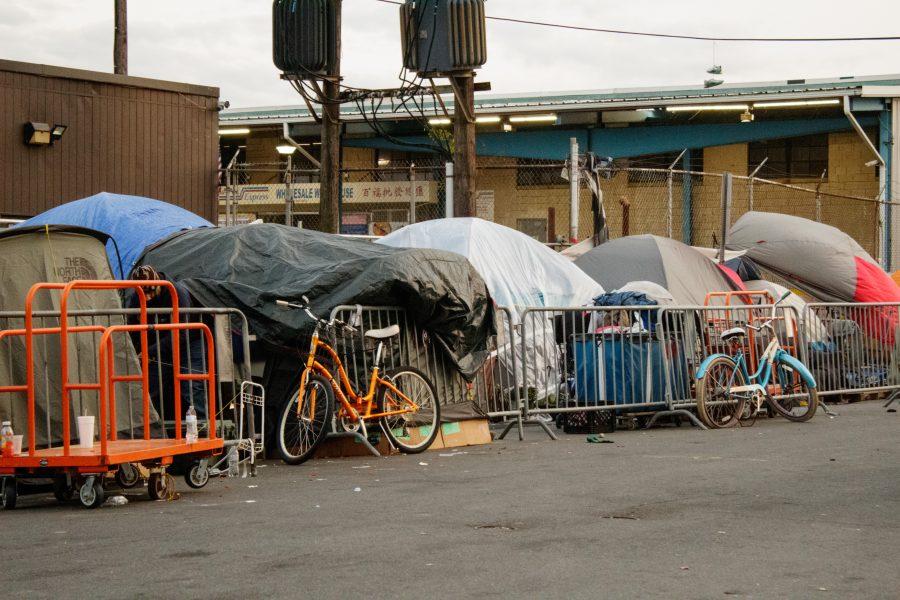On Thursday, Oct. 28, Boston city workers began work on tearing down tents along Boston’s Massachusetts Avenue and Melnea Cass Boulevard. As of Monday, Nov. 1, people that were living along the street were ordered to clear out.
According to NBC Boston: “The encampment near Massachusetts Avenue and Melnea Cass Boulevard has grown over the last several months, and the city has said it is a public health risk, unsanitary and dangerous. But officials also promised that people wouldn’t be kicked out before being offered support at least twice.”
NBC Boston reports: “Sixteen tents were stored or removed from the encampment Monday [Nov. 1], the city said in the evening. Additionally, 17 people were connected ‘with pathways to transitional housing,’ nine of whom toured new apartments, and several other people sought treatment, entered a shelter or returned to a permanent home.”
Acting Mayor Kim Janey spoke with WBUR, stating: “We have taken a public health approach to this that respects that there are people, that this isn’t about tents, this is about people. We want to make sure that our approach is one that respects people as individuals, human beings, that gives people proper notice and that we recognize that the tents and encampments are not safe and are making things worse in terms of public health.”
Some residents living in the encampment said that they were not given enough notice to find somewhere else to go.
City officials said that people would not be asked to vacate the area without an offer of shelter, services or both. According to the city of Boston’s website, offers would be made twice—“the day the notice goes up and at least a day before the tents are removed.”
The area where the encampment was located has long been known as an area where people struggled with homelessness and addiction.
According to officials, an estimated 150 tents have to come down, and city officials are working on helping those in the encampment to pack up their belongings and move to a different housing alternative.
Some of those living in the encampment expressed their apprehensions to the tents being taken down.
According to WBUR, Ronald Geddes had been living in the area for months. He stated: “Is the city just going to keep doing this? Or are they going to make a reasonable offer? I don’t want to share a shower and bathroom with somebody, and a kitchen. And that’s all I can afford right now—a room—and I don’t want to do it. I’d rather live in a tent.” Geddes also stated: “I’m not asking for anything other than affordable housing. That’s it.”
In the same article, Samantha Kardas, another resident of the encampment, stated, “We had a good situation here. We kept it clean, we kept it orderly, no arguments.”
Resident Ray Vargas, who lived in the encampment for four months, expressed his feelings about not everyone who lived in the area leaving on their own. He stated in an article by NBC: “I think there’s going to be a lot of melee. I think there’s going to be a lot of problems because not everybody’s going to leave on their own. I think they’re going to have to come up with a game plan.”
Crews from the city cleared out many of the tents along the street. Officials gave those who were living in the encampment notice that they needed to vacate by 6 a.m. on Nov. 1 before they started clearing out the tents.
According to the city’s website, “City staff will provide service outreach at least twice to each person: at the time of notice, and again at least one day prior to tent removal. Each person will be offered: drug treatment services, including inpatient detox; access to shelter, including any available shelter bed or other low-threshold housing or shelter; transportation (including vouchers) to shelter or treatment; free personal property storage; and assistance contacting family members to support reunification.”

